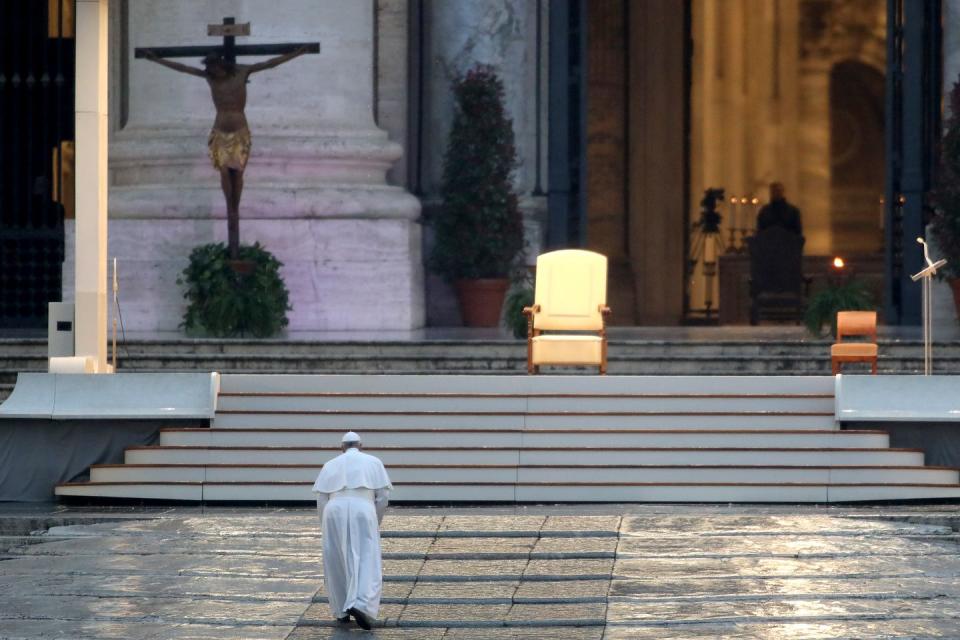Pope Francis Will Celebrate Easter Mass In an Empty St. Peter's Basilica This Year

For some, Easter is simply a day full of egg hunts, chocolate bunnies, and deviled eggs. For many Christians around the world, it's a reminder to celebrate the resurrection of Jesus Christ. No matter if you're a Chreaster (ya know, the person that only goes to mass on Easter and Christmas) or one of the estimated 1.2 billion active Catholics worldwide, there's nothing like spending Easter watching the Pope's blessing at the Vatican — even if you're sitting on your couch.
How to Watch the Pope's Easter Mass and "Urbi et Orbi" Blessing
Typically, Pope Francis leads mass and the Papal blessing at the Vatican in front of hundreds of thousands of attendees. This year, however, Italy remains under national lockdown until April 13 due to the coronavirus outbreak, which means the Pope will celebrate Easter Sunday without a crowd. Everything — Easter Sunday Mass followed by the "Urbi et Orbi" blessing and Papal Easter message — will take place inside St. Peter’s Basilica. That means, we won't get a glimpse of the Pope on the basilica's balcony like in years past.
Luckily, you can live stream the 11 a.m. Easter mass (5 a.m. ET and 2 a.m. ET) on YouTube, followed by the Pope's blessing and message. If you'd rather catch up on your rest, you can watch clips of the different services along with the full mass and messages on the Vatican's YouTube channel, Vatican News.
The Meaning and Importance of "Urbi et Orbi," Explained
Literally speaking, "Urbi et Orbi" is Latin for "to the City and to the World." This message, which is delivered by the Pope, is directly addressed to the city of Rome and the worldwide or universal church. "In the history of this papal tradition, the worldwide church is the Roman Catholic Church, as catholicos means 'universal.' More recently, the notion has broadened to all Christians and people of goodwill open to receiving the message," explains Bruce Morrill, Ph.D., the Edward A. Malloy Chair of Catholic Studies at Vanderbilt Divinity School.
The message itself includes "celebratory proclamation, biblical and traditional explanation of the feast, concern for those in need and exhortation for all to put the content of the feast into faithful, moral and social-ethical practice." In the last few years, Pope Francis has used this opportunity to comment on major global concerns, especially poverty, the refugee crisis, and climate change.
Just a few weeks ago, the Pope gave an "Urbi et Orbi" blessing in wake of the COVID-19 crisis. Typically, this blessing is reserved for Easter Sunday, Christmas day, and when a new Pope is elected — but the Pope felt it was necessary during this unprecedented time. During the extraordinary blessing on March 27, the Pope stood alone on the steps of St. Peter's Square, reminding the world to have faith despite the uncertainty and highlighting the calming of the storm in the Gospel of Mark.

This Easter's "Urbi et Orbi" blessing will likely have similar tones. Beyond the powerful message about Jesus' resurrection, the address typically concludes with plenary indulgence, which Morrill says is basically the Pope's way to "impart special graces the church believes God continuously wishes to bestow." This includes a pardon for any sins committed, granted the Roman Catholic confesses their sins and receives Holy Communion within a couple weeks time.
You Might Also Like

